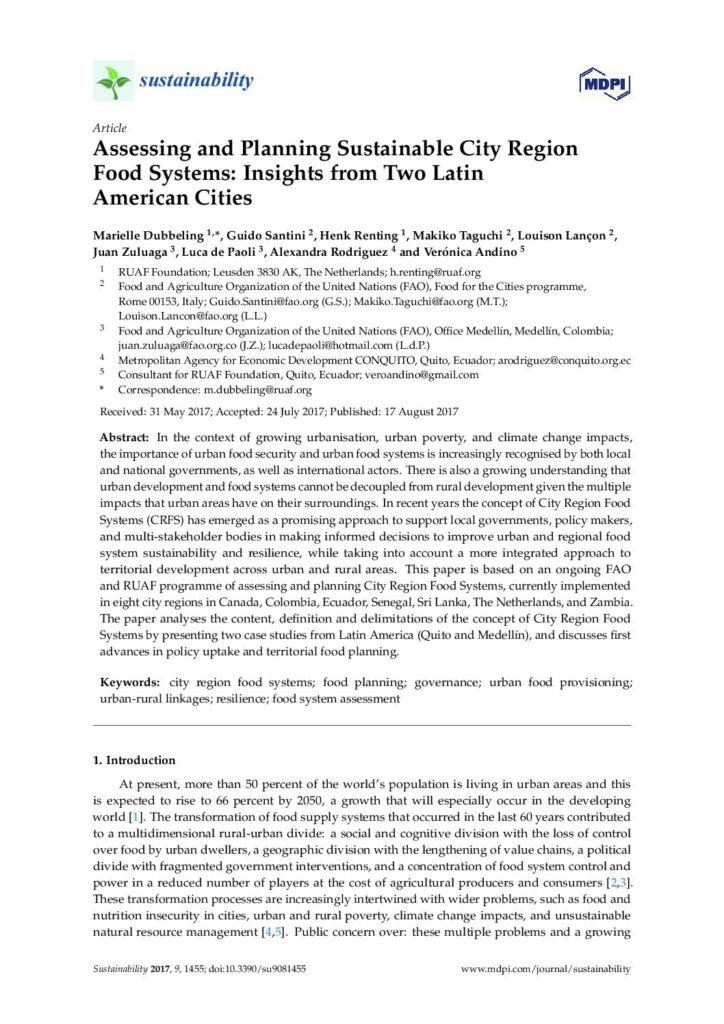In the context of growing urbanisation, urban poverty, and climate change impacts, the importance of urban food security and urban food systems is increasingly recognised by both local and national governments, as well as international actors. There is also a growing understanding that urban development and food systems cannot be decoupled from rural development given the multiple impacts that urban areas have on their surroundings. In recent years the concept of City Region Food Systems (CRFS) has emerged as a promising approach to support local governments, policy makers, and multi-stakeholder bodies in making informed decisions to improve urban and regional food system sustainability and resilience, while taking into account a more integrated approach to territorial development across urban and rural areas.
This article is based on an ongoing FAO and RUAF programme of assessing and planning City Region Food Systems, currently implemented in eight city regions in Canada, Colombia, Ecuador, Senegal, Sri Lanka, The Netherlands, and Zambia. It analyses the content, definition and delimitations of the concept of City Region Food Systems by presenting two case studies from Latin America (Quito and Medellín), and discusses first advances in policy uptake and territorial food planning.

